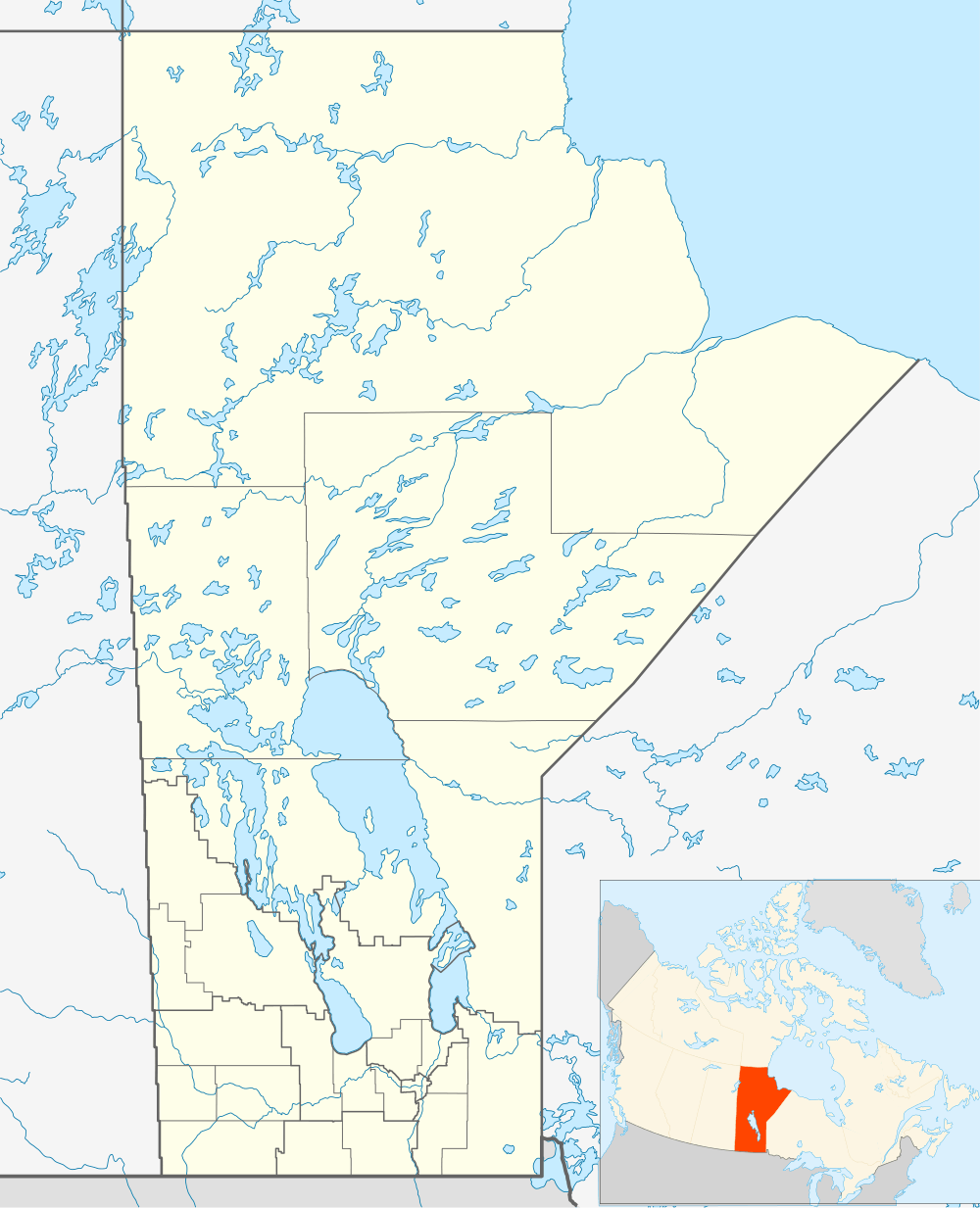Lauder, Manitoba
| Lauder | |
|---|---|
 Lauder Location of Lauder in Manitoba | |
| Coordinates: 49°23′26″N 100°40′37″W / 49.39056°N 100.67694°WCoordinates: 49°23′26″N 100°40′37″W / 49.39056°N 100.67694°W | |
| Country |
|
| Province |
|
| Region | Westman Region |
| Census Division | No. 5 |
| Government | |
| • Governing Body | Rural Municipality of Cameron Council |
| • MP | Larry Maguire |
| • MLA | Doyle Piwniuk |
| Time zone | CST (UTC−6) |
| • Summer (DST) | CDT (UTC−5) |
| Postal Code | R0M 1C0 |
| Area code(s) | 204 |
| NTS Map | 062F07 |
| GNBC Code | GAOGM |
Lauder is a small community in the Rural Municipality of Cameron in Manitoba, Canada. The community is located at the junction of Highway 254 and Highway 345, approximately 100 km south-west of Brandon, Manitoba only 22 km south-west of the Town of Hartney. Lauder is about 3 miles south of the Souris River and the Lauder Sand Hills. Lauder was established in 1891 by the Canadian Pacific Railway and named after Archdeacon John Strutt Lauder, rector of Christ Church in Ottawa. The first survey laid out blocks 1-3 then in 1903, the CPR surveyors laid out blocks 4-7. About the only type of business the town didn't have in its long history was a fire department. The first of several devastating fires was "the great fire of 1894". 125 years after its establishment, there is only one business left in town and most of the buildings are gone but the community spirit is strong. A vast amount of information about Lauder is available in "The Rise and Fall of a Prairie Town" See below.
Infrastructure
Lauder is served by the Canadian Pacific Railway, as well Manitoba Highways 254 & 345.[1]
Attractions
- Lauder Sandhills[2]
Notable People
Robert Fulton Logan (1889-1959), A painter, illustrator, and specialist in copper etchings.[3]
There is some conflicting information about Mr. Logan but the most detailed and presumably most accurate is the following bio on the Saskatchewan Council for Archives and Archivists web site http://scaa.sk.ca:
“Widely acknowledged as one of America's greatest architectural etchers of the early twentieth century, Robert Fulton Logan was in fact a Canadian. Born in Manitoba, Robert Fulton Logan received his first art lessons in Winnipeg under Frank Armington. At the age of sixteen he enrolled at the Boston Museum of Fine Arts, then at the Chicago Art Institute. Logan first journeyed to France during the First World War as an officer in the American navy. After the war, Robert Logan accepted the position of director at the Bellevue Art Training Center, in Paris, and also taught classes at the Louvre. He remained in Paris for almost twenty years. During his career, Robert Fulton Logan created over one hundred architectural etchings of scenes in France, Germany and Holland. The first important one-man showing of his etched art was held at the American Chamber of Commerce, Paris, (1922) and then at annual exhibitions at the Galerie Marcel Guiot. On his return to the United States in 1934, Logan accepted the position of Chairman of the Department of Art at Connecticut College, remaining there until his retirement in 1954. Robert Logan was a full member of the Chicago Society of Etchers, the National Arts Club (1922) and the Société internationale de la gravure originale en noir (1921). Today, examples of his original etchings are housed in the collections of the British Museum, London, the Winnipeg Art Gallery, Cambridge University, the Bibliothèque nationale, Paris, the Museum of Luxembourg, the Metropolitan Museum, New York, the Library of Congress, Washington, and the Smithsonian Museum.”
His obituary is available at https://news.google.com/newspapers?nid=1915&dat=19591205&id=fu0gAAAAIBAJ&sjid=F3IFAAAAIBAJ&pg=736,1313883
Gordon G. Phillips (1927-1992) Graduated from the University of Manitoba with a degree in Mechanical Engineering. He moved to Ottawa where he helped design and build the Alouette communication satellites. In 1965 he went to work in the Canadian Patent Office. Gordon wrote several books including the following:
- The Rise and Fall of a Prairie Town : a history of Lauder, Manitoba, and the surrounding district
- Payload Packaging Design - Alouette Satelite
- Patents of Nova Scotia : pre Confederation, 1834-1869
- Index of Inventors and Inventions for Canadian patents, 1824-1872
The Lauder history was published progressively in five volumes between 1973 and 1978. In 1991, Phillips updated his work with a sixth volume. With a few exceptions, the individual family histories were written by members of those families. At the 1991 Lauder Centennial celebrations, the six volumes were sold as a single 736 page hard bound book. The source material is preserved in the National Archives in Ottawa.
Phillips kindly did not copyright The Rise and Fall of a Prairie Town. Some of the original volumes are available for download at http://manitobia.ca.
See also
References
- ↑ Infrastructure in Lauder -
- ↑ Lauder Sandhills - Town of Hartney website
- ↑ Robert Fulton Logan - Memorable Manitobans
External links
- Lauder Community Profile - Town of Hartney website
 |
Pipestone | Grande-Clairière | Souris |  |
| Tilston | |
Hartney | ||
| ||||
| | ||||
| Napinka | Medora | Boissevain |